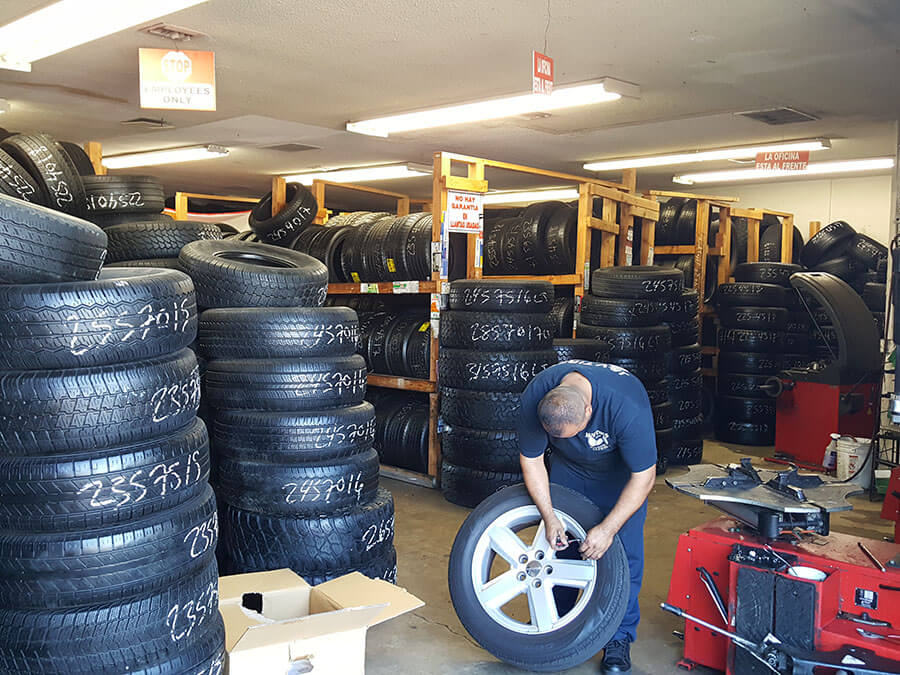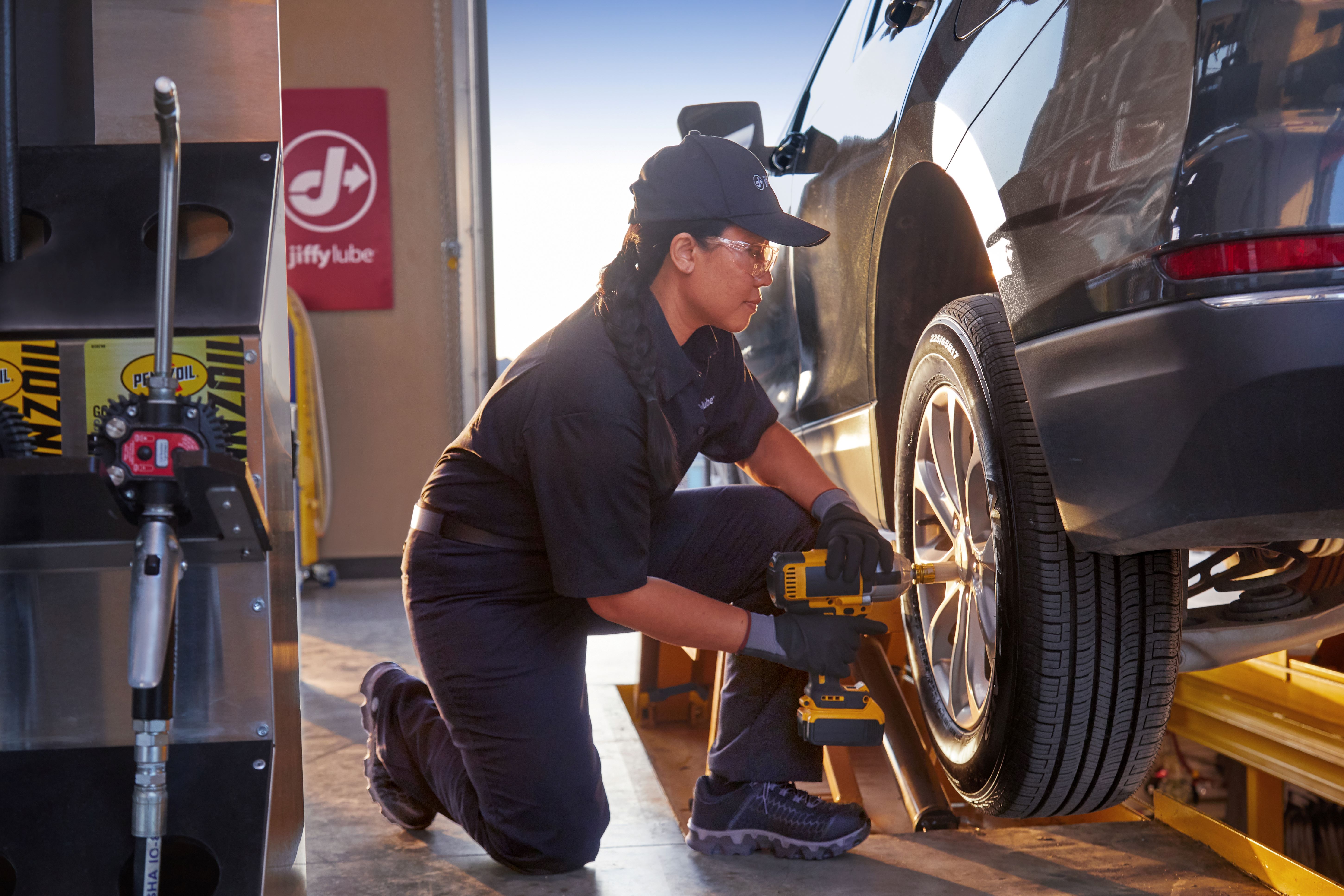Tire Solution: The Influence of Weather
When it comes to making certain optimum performance and safety on the road, understanding the impact of weather conditions on tire service is essential. In this conversation, we will certainly explore the intricate connection between weather conditions and tire service, dropping light on the value of weather-specific tire upkeep methods and factors to consider.
Warm and Tire Efficiency
When subjected to heats, tires experience modifications in performance that can considerably impact vehicle safety and handling. The warmth created from extended driving or heat problems creates the tire rubber to soften, causing minimized tread life and increased wear. As the rubber comes to be softer, the tire's grasp when driving decreases, affecting stopping distances and overall grip. In extreme cases, too much warm can even trigger tire blowouts, positioning a severe safety and security danger to the vehicle and its owners.
Furthermore, high temperature levels can accelerate the process of tire aging, triggering the rubber to degrade extra quickly. To reduce the impacts of warmth on tire efficiency, drivers ought to consistently check their tire pressure, rotate tires to guarantee even put on, and inspect for any signs of damage.
Cold Weather Condition Impacts
Winter conditions can have a significant effect on tire performance and safety and security. As temperature levels decline, tire rubber can harden, causing decreased traction on icy or snow-covered roadways. In chilly weather condition, tires may likewise shed atmospheric pressure a lot more swiftly, which can influence handling and fuel performance. In addition, chilly temperature levels can cause tire sidewalls to stiffen, raising the threat of damages from fractures or various other roadway threats.
To reduce the results of chilly weather on tires, it is essential to frequently check tire stress and inflate them to the producer's recommended degrees. Using winter months or all-season tires created for winter conditions can also enhance traction and hold on icy or snowy roads - tires morris il. Proper tire upkeep, including normal assessments for wear and damages, ends up being much more crucial throughout colder months to make certain ideal performance and security
Rainy Conditions Effect
Tires with damaged footsteps are extra susceptible to hydroplaning, where a layer of water develops up in between the tire and the road surface, leading to loss of grip. To combat this, vehicle drivers need to consistently check their tires for sufficient step deepness and consider spending in tires particularly designed for damp conditions.

Snow and Tire Security
When driving in snowy problems, having the ideal tires can make a significant difference in security and performance. Wintertime tires are created with unique rubber compounds and walk patterns to offer much better grip on snow and ice contrasted to all-season tires.
Along with using winter season tires, it is important to guarantee they are effectively pumped up. Winter can cause tire pressure to drop, affecting grip and handling (discount tires morris il). Routinely checking and maintaining the correct tire pressure is necessary for ideal performance in snowy conditions

Weather-Related Tire Upkeep
When encountered with various weather condition problems, correct tire maintenance ends up being a vital aspect of vehicle security and performance. Weather-related tire upkeep encompasses a variety of practices focused on ensuring ideal tire feature and longevity in different climate scenarios. One essential facet of weather-related tire upkeep is tire pressure investigate this site policy. Rising and fall temperatures can trigger tire stress to differ, impacting traction and fuel effectiveness. Routinely readjusting and checking tire pressure according to producer suggestions is crucial for safe driving in altering weather condition problems. Furthermore, tire step deepness plays a substantial role in handling different weather aspects. Tires with appropriate walk deepness give far better grasp on damp or icy roadways, lowering the threat of hydroplaning or skidding. When walk wear reaches a specific depth is important for preserving traction and stability in unfavorable weather, examining tire tread frequently and changing tires. By prioritizing weather-related tire maintenance, chauffeurs can improve security, enhance vehicle efficiency, and lengthen the life expectancy of their tires.
Conclusion
In verdict, weather condition conditions have a substantial effect on tire efficiency and security. From warmth impacting tire stress and use to cold weather condition reducing grip, it is important to take review into consideration the weather condition when keeping and using tires. Stormy conditions can reduce grasp and cause hydroplaning, while snow can raise the danger of crashes if tires are not correctly outfitted. Weather-related tire maintenance is vital in guaranteeing ideal efficiency and safety on the roadways.
In this discussion, we will certainly discover the elaborate connection in between climate problems and tire solution, shedding light on the significance of weather-specific tire maintenance techniques and factors to consider.
